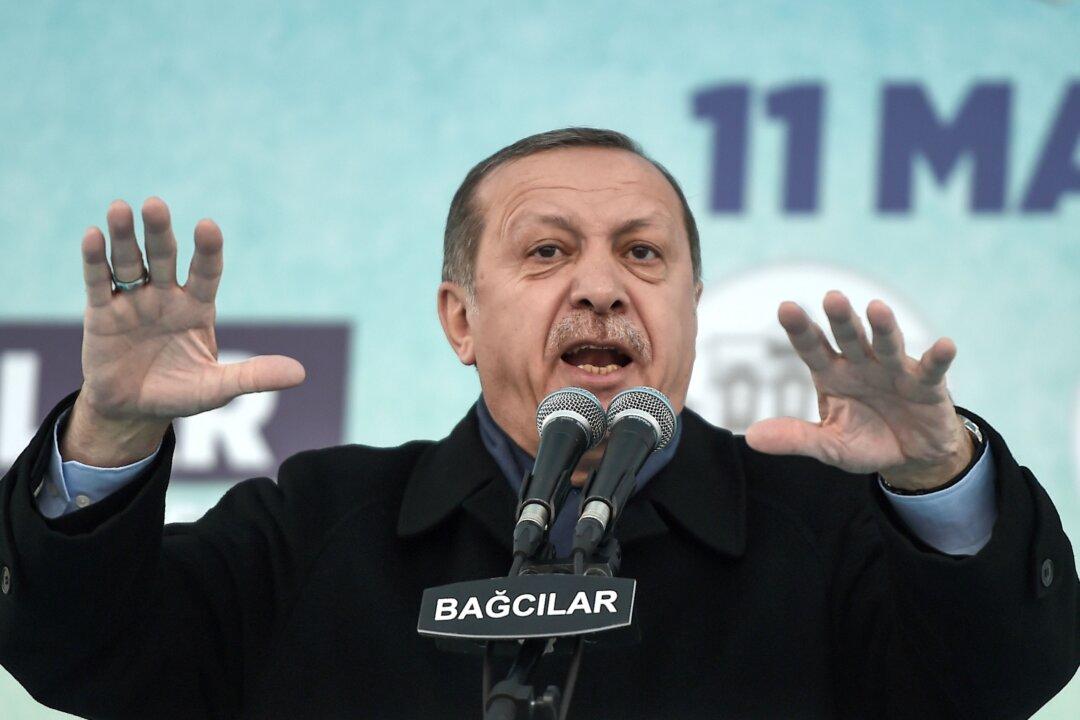As global pressure is mounting for social media giants to remove footage of the New Zealand Christchurch mosque attacks from their platforms, Turkey’s President Recep Tayyip Erdogan used part of the footage as an election campaign prop in his rallies to secure votes for local elections this month.
Erdogan screened partially blurry footage of the shootings with the caption, “A terrorist who is the enemy of Islam and the Turks,” during a number of election campaign events over the weekend, the Financial Times reported.





